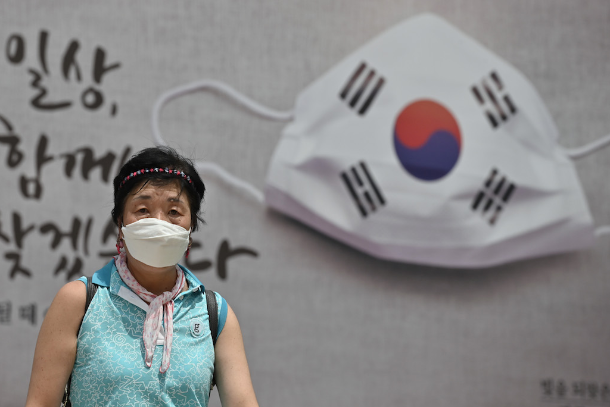Faith in the era of coronavirus
The coronavirus crisis is raising challenges and questions in all areas of life. It is no exception in the realm of religion and faith.
Aug 29, 2020

By Fr Jeong Hee Wan
The coronavirus crisis is raising challenges and questions in all areas of life. It is no exception in the realm of religion and faith.
The crisis raises fundamental questions and challenges even in Catholic life. Through the crisis, we discover that the life of faith and the way of pastoral ministry were exposing many problems. We witnessed that the life of faith and pastoral ministry centered on the sacraments and liturgy were helplessly limited during the time of quarantine and lockdown. We are also witnessing the process of transferring faith life from face-to-face contact to non-face-to-face connection.
The Covid-19 crisis makes us reflect on the whole life of faith, including the liturgy and sacrament, the religious life of believers, the pastoral duties of the clergy, and the shape of the parish and church community.
The suspension of public Masses leads to rethinking of the liturgy and sacrament. There was a theological debate over online Mass and liturgy. Online Mass and liturgy have not yet gained validity and legitimacy. They are simply used as a temporary alternative.
On the other hand, the painful question arises about who the liturgy is for and who is celebrated. The crisis clearly shows how poor the position and role of the laity within the sacraments and liturgy are. This crisis brought the issue of the distinction and role of the priest and the laity within the liturgy to the surface again. The experiences and memories of the suspension of public Masses through the corona crisis may serve as a medium for requesting change and renewal of the liturgy.
According to the Catechism of the Catholic Church, the life of faith is composed of four areas: doctrine and faith studies; liturgy and sacraments; social life and ethics; prayer and spirituality. Perhaps the coronavirus crisis is a good opportunity to restore the totality of faith. The weight of the life of faith seems to be shifting from church life centred on the sacraments and liturgy to the direction where the spiritual dimension in daily life is emphasised.
The special experiences of the COVID-19 era are calling for pastors to review and reflect on their duties. The crisis gives us an opportunity to examine and reflect on the existing methods of pastoral ministry. Pastoral ministry in this time will be a way of visiting rather than calling. It should be borne in mind that pastoral ministry is service and commitment rather than governance, administration and management.
The crisis restricts large rallies and face-to-face contact and calls for a new reflection on the shape of the church community. It could also be a paradoxical vehicle for promoting small community movements. The traditional parish community form alone will not be able to respond well to these challenges. There is a need to form a new type of community, a new power centre where the clergy and the laity can jointly proclaim the gospel. The parish is not for the sustainment and maintenance of the parish itself but always for mission, pastoral care and religious life. The structure and operation of the parish must always be renewed.
It is up to the faithful whether the Church will simply resume or start anew. A change in mind and attitude must be made first before a change in law and system. This is why Pope Francis emphasises the spirit and attitude of pastoral conversion and synodality. Let’s start with a new imagination and interpretation. Let’s change our thoughts and attitudes. Final change and renewal are always up to the Holy Spirit. ––ucanews.com
(Fr Jeong Hee Wan is a priest in the Diocese of Andong in South Korea and chief of the Institute of Catholic Culture and Theology. He is a former professor at Daegu Catholic University.)







Total Comments:1